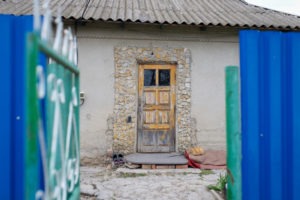 To learn more about our work supporting refugees, visit Our Support for Ukraine.
To learn more about our work supporting refugees, visit Our Support for Ukraine.
On April 27, 2022, Dr. Ludmila Malcoci, Executive Director of Keystone Moldova and Keystone Human Services International Regional Director of Central and Eastern Europe, spoke at a webinar organized by EASPD, “Hosting Ukrainians With Disabilities: How to organize it as service providers.” She joined representatives from NGOs: Lukas Kvokacka from Barlicka in Slovakia, Eric Bloemkolk from Soft Tulip in the Netherlands, Markus Neuherz from Lebenshilfe Austria, and Gunta Anca from SUSTENTO in Latvia.
Dr. Malcoci highlighted the need to be proactive in finding ways to effectively support refugees with disability. Partnering with other NGOs is crucial, as well as building on existing services.
Since the war began, Keystone Moldova has been part of the United Nations High Commissioner for Refugees (UNHCR) interagency mechanism and is now leading a national task force on disabilities. This task force is developing partnerships among NGOs in Moldova to develop a joint advocacy plan and a system of NGO references, allowing NGOs to pool their expertise to jointly support refugees with disabilities.
Moldova is also developing a pathway system of all services available for people with disability, opening a way for NGOs to refer people with disabilities to services based on their needs.
Keystone Moldova has built on our existing services. We expanded the hotline support service to include refugees with disabilities. Through a phone call, people can access information, counseling, and referrals to other services. In the past week, the hotline support services helped people procure a wheelchair, connected people with medical professionals, and helped people access food, hygiene supplies, and medicine. The hotline service also mentors and monitors the supports provided, and follows up with people to make sure they were satisfied with the support they received.
We also expanded the mobile teams service, which works in concert with the hotline service. Mobile teams provide direct support for people, identifying their needs, developing plans, and implementing those plans, all in partnership with people with disability. The team, including a medical doctor and a social worker, visits shelters throughout Moldova and contacts the departments of social protection to map the needs of refugees with disabilities.
For both services, Keystone Moldova uses the same approach as we used in our services before the war. We partner with each person to make sure they have a voice in services, work together to identify their needs, and develop an individual assistance plan.
How can you help?
People’s needs change every day, and the biggest way you can help is by donating unrestricted funds to give Keystone Moldova the ability to help however we’re needed. Donate and make an impact today.


 To learn more about our work supporting refugees, visit
To learn more about our work supporting refugees, visit